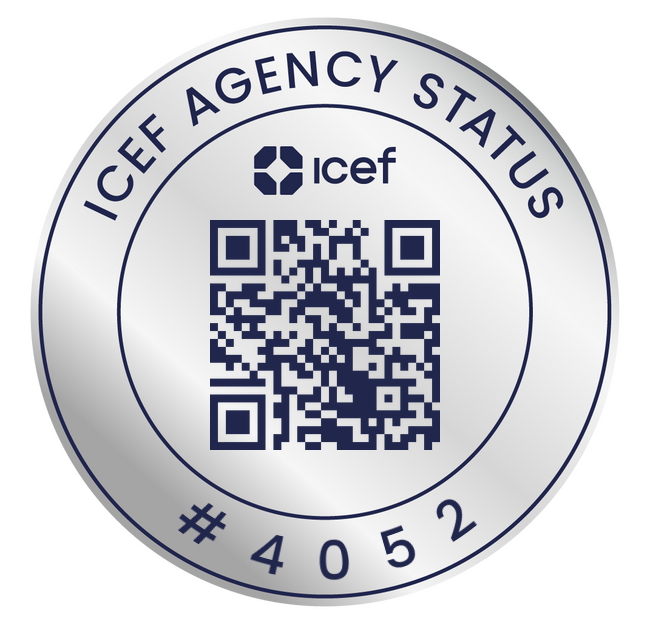Reading comprehension is a crucial skill that plays a significant role in various aspects of life, including academic success, professional advancement, and everyday communication. However, many individuals struggle with comprehending written content due to various reasons. In this article, we will explore expert tips and strategies to enhance your IELTS reading comprehension skills. By implementing these techniques, you can improve your ability to understand, analyze, and interpret written texts effectively.
Understanding the Challenges of Reading Comprehension
Lack of Background Knowledge
One of the primary reasons why individuals find reading comprehension challenging is the lack of background knowledge. Without a solid foundation in the subject matter, it can be difficult to grasp the main ideas and concepts presented in the text. To overcome this challenge, it is essential to build your knowledge base by conducting thorough research and acquiring relevant information before approaching a text.
Vocabulary Limitations
Limited vocabulary can hinder comprehension, as unfamiliar words can impede the understanding of the overall meaning of a text. To overcome this challenge, it is crucial to expand your vocabulary by regularly reading and engaging with diverse texts. Additionally, utilizing context clues, such as surrounding words and sentences, can help deduce the meanings of unfamiliar words.
Ineffective Reading Habits
Poor reading habits can significantly impact reading comprehension. Some individuals may lack effective strategies such as previewing the text or taking notes while reading, which can make it challenging to retain information and understand the text thoroughly. By adopting active reading techniques, such as underlining key points, asking questions, and taking notes, you can improve your comprehension and engagement with the text.
Attention & Focus Issues
Difficulties in maintaining attention and focus can hinder reading comprehension. Individuals with attention deficit disorders or trouble focusing may struggle to concentrate on the text, resulting in an incomplete understanding of the content. To address this challenge, it is helpful to create an environment conducive to concentration, eliminate distractions, and incorporate mindfulness techniques to enhance focus.
Weak Critical Thinking Skills
Analyzing and understanding information requires strong critical thinking skills. Individuals lacking in this area may find it challenging to draw conclusions, make inferences, and recognize the underlying meaning in a text. To strengthen critical thinking skills, engaging in activities that promote analytical thinking, such as solving puzzles or participating in debates, can be beneficial.
Language Barriers
For non-native English speakers, language barriers can pose a significant obstacle to reading comprehension. The complexities of the English language, including idiomatic expressions and technical terms, can make understanding texts challenging. To overcome this challenge, individuals can improve their language skills through consistent practice, exposure to English materials, and seeking assistance from language tutors or online resources.
Lack of Interest in the Subject
A lack of interest in the subject matter can dampen motivation and hinder comprehension. When readers are uninterested in the topic, they may struggle to engage with the text and comprehend its content fully. To overcome this challenge, it is important to find ways to make the subject matter more engaging, such as relating it to personal experiences or finding alternative resources that present the information in a more captivating manner.
Key Elements of Reading Comprehension
Recognizing Main Ideas
One of the key elements of reading comprehension is the ability to identify the main ideas presented in a text. The main idea represents the central point or message that the author intends to convey. It can be found in the topic sentence of a paragraph or the overarching theme of the writing. Recognizing the main ideas allows readers to focus on the most important information and comprehend the purpose of the text.
Making Inferences
Inferences play a crucial role in understanding a text on a deeper level. Readers draw conclusions based on the information provided in the text, allowing them to infer underlying meanings, emotions, or motivations of characters or events. For example, if a text mentions that a character is feeling sad, readers can infer that the character is experiencing negative emotions. Making inferences enhances comprehension by providing insights into the text beyond the literal meaning.
Understanding Connections
Comprehending the connections between different elements of a text is vital for reading comprehension. This includes understanding the relationships between sentences and paragraphs, as well as the connections between various concepts presented in the text. By recognizing these connections, readers can navigate through the text more effectively, understanding how different ideas relate to each other and contribute to the overall meaning.
Utilizing Context Cues
The ability to recognize and utilize context cues is a critical component of reading comprehension. Context clues are words, phrases, or sentences that provide information about the meaning of a word or phrase. They can be found within the text, in accompanying images or illustrations, or even in the title of the publication. Identifying context cues helps readers understand the meaning of new or unfamiliar words, particularly when technical or specialized terminology is used.
Strategies to Improve Reading Comprehension
Active Reading
Active reading involves actively engaging with the text by underlining key points, taking notes, and asking questions. This approach enhances comprehension by promoting active engagement and interaction with the material. By actively participating in the reading process, you can better understand and remember the information presented in the text.
Previewing the Text
Before diving into the text, it is beneficial to preview its content. This involves scanning the title, headings, and subheadings to gain an initial understanding of the text’s structure and main ideas. Previewing the text provides a roadmap for reading, helping you focus on the most crucial information and anticipate what to expect.
Utilizing Context Clues
When encountering unfamiliar words or phrases, context clues can provide valuable insights into their meanings. By examining the surrounding words and sentences, you can deduce the intended definition and enhance your comprehension. Practice identifying context clues to expand your vocabulary and improve your understanding of texts.
Taking Breaks
If you find yourself losing focus or struggling to comprehend the text, taking short breaks can be beneficial. Stepping away from the material for a brief period and returning with a refreshed mind can improve concentration and overall comprehension. Use these breaks to relax, refocus, and recharge before continuing with the reading.
Summarizing
After reading a section or a complete text, summarizing the main points in your own words can enhance comprehension and retention. By condensing the information into concise summaries, you reinforce your understanding of the material and create mental connections between the key ideas. Summarizing also helps you review and recall the essential points later.
Reading with a Purpose
Approaching a text with a clear purpose in mind enhances comprehension. When you understand why you are reading a particular text, you are more likely to pay attention to the information that is relevant to your purpose. Define your reading goals and objectives before starting a text to guide your comprehension efforts effectively.
Skimming & Scanning
Skimming and scanning techniques are useful for quickly gathering information from a text. Skimming involves rapidly reading through the text to get an overview of the content and identify key points. Scanning, on the other hand, involves searching for specific information by quickly scanning the text for relevant keywords or phrases. These techniques allow you to grasp the main ideas and locate specific information efficiently.
Flashcards for Vocabulary
Flashcards can be a valuable tool for memorizing new vocabulary and concepts. Create flashcards with unfamiliar words or phrases and their definitions. Regularly review and practice using these flashcards to reinforce your understanding and expand your vocabulary. Flashcards are particularly effective for language learners aiming to improve their reading comprehension.
Comprehension Questions
Practicing with comprehension questions is an excellent way to assess and enhance your understanding of a text. After reading a passage, ask yourself questions about the content, main ideas, and supporting details. This exercise helps you evaluate your comprehension and identify areas that need further clarification or review.
Regular Reading Habits
Developing a habit of regular reading is one of the most effective ways to improve reading comprehension. Engage in consistent reading practice by incorporating reading materials that align with your interests and goals. Whether it is novels, articles, or news, the more you read, the better your comprehension skills will become.
Conclusion
Reading comprehension is a fundamental skill that can be enhanced through the implementation of expert tips and strategies. By addressing the challenges that hinder comprehension, such as limited vocabulary, ineffective reading habits, and lack of background knowledge, individuals can significantly improve their reading skills. Applying techniques like active reading, previewing the text, utilizing context clues, and summarizing can aid in comprehending texts more effectively. With consistent practice and a commitment to regular reading, you can boost your IELTS reading comprehension skills and achieve success in academic, professional, and everyday contexts.
Additional Information: Boost your IELTS reading skills with expert tips and strategies for enhanced comprehension.
Primary Keyword: IELTS reading comprehension Secondary Keywords: enhance reading skills, expert tips and strategies, improve comprehension, effective reading habits, context clues, main ideas, making inferences, understanding connections, active reading, previewing the text, taking breaks, summarizing, reading with a purpose, skimming and scanning, flashcards for vocabulary, comprehension questions, regular reading habits.




